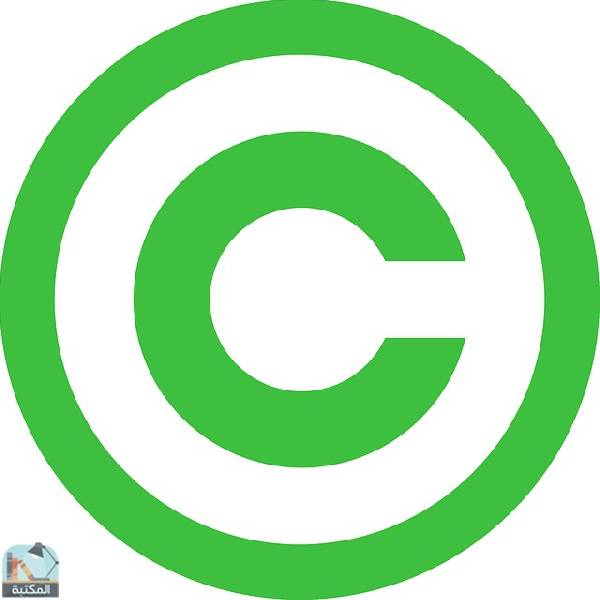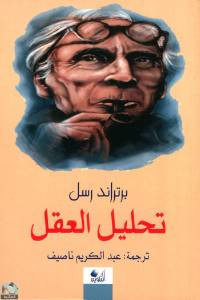📘 ❞ The Philosophy of Logical Atomism (Library of Living Philosophers) by Bertrand Russell(December 31, 1998) Paperback ❝ كتاب ــ برتراند راسل اصدار 1598
الفكر والفلسفة - 📖 كتاب ❞ The Philosophy of Logical Atomism (Library of Living Philosophers) by Bertrand Russell(December 31, 1998) Paperback ❝ ــ برتراند راسل 📖
█ _ برتراند راسل 1598 حصريا كتاب ❞ The Philosophy of Logical Atomism (Library Living Philosophers) by Bertrand Russell(December 31, 1998) Paperback ❝ عن جميع الحقوق محفوظة للمؤلف 2025 Paperback: A SERIES OF LECTURES ON RUSSELL’S EARLY POST “PRINCIPIA” PHILOSOPHY Bertrand Arthur William Russell (1872–1970) was an influential British philosopher, logician, mathematician, and political activist In 1950, he awarded the Nobel Prize in Literature [NOTE: page numbers below refer to 188 Open Court paperback edition ] This book contains a series lectures given winter 1917 1918; they were first published Monist 1918, then reprinted Logic Knowledge 1956 1924 essay called “Logical Atomism” is added at end He explains, “The reason that I call my doctrine LOGICAL atomism because atoms wish arrive as sort last residue analysis are logical not physical Some them will be what ‘particulars’ such things little patches colour or sounds, momentary some predicates relations so on point atom analysis, ” (Pg 37) He adds later, “That one characteristics propositions, mention nothing… All those words come statement pure proposition really belonging syntax They merely expressing form connection, mentioning any particular constituent which occur This is, course, thing wants proved; am laying it down self evident 43) He also acknowledges, “A very great deal saying this course consists ideas derived from friend [Ludwig] Wittgenstein But have had no opportunity knowing how far his changed since August 1914 [Wittgenstein served Austrian army during WWI], nor whether alive dead, cannot make anyone but myself responsible for 66 67) He admits, “When speak symbol simply mean something ‘means’ else, ‘meaning’ prepared tell you 45) He adds, “I trying possible … start with perfectly plain truisms My desire should obvious wonder why spend time stating them… philosophy simple seem worth stating, paradoxical believe 53) الفكر والفلسفة مجاناً PDF اونلاين ترتيب أمور معلومة للتأدي إلى مجهول ويُستخدم الدراسات المتعلقة بالعقل البشري ويشير قدرة العقل تصحيح الاستنتاجات بشأن ما هو حقيقي أو واقعي وبشأن كيفية حل المشكلات ويمكن تقسيم النقاش المتعلق بالفكر مجالين واسعي النطاق وفي هذين المجالين استمر استخدام المصطلحين "الفكر" و"الذكاء" كمصطلحين مرتبطين ببعضهما البعض الفلسفة (لغويا من اليونانية φιλοσοφία philosophia والتي تعني حرفيًا "حب الحكمة") هي دراسة الأسئلة العامة والأساسية الوجود والمعرفة والقيم والعقل والاستدلال واللغة غالبًا تطرح مثل هذه كمسائل لدراستها حلها ربما صاغ مصطلح "فيلسوف (محب الحكمة)" الفيلسوف وعالم الرياضيات فيثاغورس (570 495 قبل الميلاد) تشمل الأساليب الفلسفية الاستجواب والمناقشة النقدية والحجة المنطقية والعرض المنهجي وهذا ركن خاص بكتب مجانيه للتحميل

كتاب
The Philosophy of Logical Atomism (Library of Living Philosophers) by Bertrand Russell(December 31, 1998) Paperback
ــ برتراند راسل
صدر 1598م
كتاب
The Philosophy of Logical Atomism (Library of Living Philosophers) by Bertrand Russell(December 31, 1998) Paperback
ــ برتراند راسل
صدر 1598م- مساهمة من: محمد عبيد
( الأحد 5 يناير 2025 ( 5:22 مساءً )) - تبليغ عن سوء استخدام

A SERIES OF LECTURES ON RUSSELL’S EARLY POST-“PRINCIPIA” PHILOSOPHY
Bertrand Arthur William Russell (1872–1970) was an influential British philosopher, logician, mathematician, and political activist. In 1950, he was awarded the Nobel Prize in Literature. [NOTE: page numbers below refer to the 188-page Open Court paperback edition.]
This book contains a series of lectures given in the winter of 1917-1918; they were first published in The Monist in 1918, then reprinted in Logic and Knowledge in 1956. A 1924 essay called “Logical Atomism” is added at the end of the book.
He explains, “The reason that I call my doctrine LOGICAL atomism is because the atoms that I wish to arrive at as the sort of last residue in analysis are logical atoms and not physical atoms. Some of them will be what I call ‘particulars’---such things as little patches of colour or sounds, momentary things---and some of them will be predicates or relations and so on. The point is that that atom I wish to arrive at is the atom of logical analysis, not the atom of physical analysis.” (Pg. 37)
He adds later, “That is one of the characteristics of logical propositions, that they mention nothing… All those words that come in the statement of a pure logical proposition are words really belonging to syntax. They are words merely expressing form or connection, not mentioning any particular constituent of the proposition in which they occur. This is, of course, a thing that wants to be proved; I am not laying it down as self-evident.” (Pg. 43)
He also acknowledges, “A very great deal of what I am saying in this course of lectures consists of ideas which I derived from my friend [Ludwig] Wittgenstein. But I have had no opportunity of knowing how far his ideas have changed since August 1914 [Wittgenstein served in the Austrian army during WWI], nor whether he is alive or dead, so I cannot make anyone but myself responsible for them.” (Pg. 66-67)
He admits, “When I speak of a symbol I simply mean something that ‘means’ something else, and as to what I mean by ‘meaning’ I am not prepared to tell you.” (Pg. 45) He adds, “I am trying as far as possible … to start with perfectly plain truisms. My desire and wish is that the things I start with should be so obvious that you wonder why I spend my time stating them… the point of philosophy is to start with something so simple as not to seem worth stating, and to end with something so paradoxical that no one will believe it.” (Pg. 53)
#12K
0 مشاهدة هذا اليوم#76K
1 مشاهدة هذا الشهر#129K
28 إجمالي المشاهدات- 🎁 كن أول كاتب اقتباس في هذه الصفحة واحصل على هديّة 15 من النقاط فوراً 🎁
-
كتب أخرى لـ برتراند راسل:
- ❞ إنهم يجعلون علم النفس يعتمد بشكل متزايد على علم الهيئة والمشاهدة الخارجية، ويميلون للتفكير بالمادة كشيء ما أكثر تماسكاً بكثير وأقل عرضة للشك من العقل، بينما الفيزيائيون، ولا سيما أينشتاين والأنصار الآخرون لنظرية النسبية، يجعلون ((المادة)) أقل وأقل مادية. عالمهم يتكون من وقائع تستمد منها المادة من خلال تركيب منطقي. فكل من يقرأ، مثلاً، كتاب الأستاذ إدينغتون ((المكان، الزمان والجاذبية)) سيرى أن المادة عتيقة – الطراز لم تعد تلقى دعماً من الفيزياء الحديثة. وأظن أن ما يتصف بقيمة ثابتة في نظر السلوكيين إنما هو الشعور بأن الفيزياء هي العلم الأكثر أساسية في الوجود الراهن. لكن هذا الموقف لا يمكن أن يدعى مادياً، إذ لم تعتبر الفيزياء، كما يبدو أنها هي الحالة، وجود المادة أمراً مفروغاً منه.. ❝ ⏤برتراند راسل❞ إنهم يجعلون علم النفس يعتمد بشكل متزايد على علم الهيئة والمشاهدة الخارجية، ويميلون للتفكير بالمادة كشيء ما أكثر تماسكاً بكثير وأقل عرضة للشك من العقل، بينما الفيزيائيون، ولا سيما أينشتاين والأنصار الآخرون لنظرية النسبية، يجعلون ((المادة)) أقل وأقل مادية. عالمهم يتكون من وقائع تستمد منها المادة من خلال تركيب منطقي. فكل من يقرأ، مثلاً، كتاب الأستاذ إدينغتون ((المكان، الزمان والجاذبية)) سيرى أن المادة عتيقة – الطراز لم تعد تلقى دعماً من الفيزياء الحديثة. وأظن أن ما يتصف بقيمة ثابتة في نظر السلوكيين إنما هو الشعور بأن الفيزياء هي العلم الأكثر أساسية في الوجود الراهن. لكن هذا الموقف لا يمكن أن يدعى مادياً، إذ لم تعتبر الفيزياء، كما يبدو أنها هي الحالة، وجود المادة أمراً مفروغاً منه. ❝
⏤ برتراند راسل




